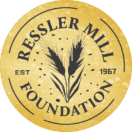Through the generosity of the Ressler family and the private foundation they created, visitors are invited at no charge to step back in time and learn about the history of grain milling and early rural family life at the Mascot Roller Mills and Ressler Family Home in eastern Lancaster County, Pennyslvania.
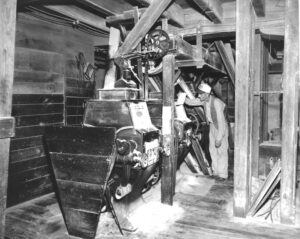
Wheat and other grains were staple foods for America’s early pioneers, and mills, of necessity, were among the first buildings in rural communities. According to the book “The Development of the Flour Milling Industry in the United States” by Charles B. Kuhlman, the very first mill in Pennsylvania was built before 1647 near Philadelphia, and by 1786 there were 18 flour mills within a 10-mile radius of Lancaster.
The ample water power and productive nearby farms made the banks of Mill Creek the site for several mills, with Mascot Mill located at one of the earliest sites. The original mill building was erected in the mid 1730s, probably by Jacob Bear. Daniel Groff owned the property from 1820 to 1860 and raised the mill to its present height. In 1865 William Ressler purchased the mill, beginning three generations of Ressler family ownership.
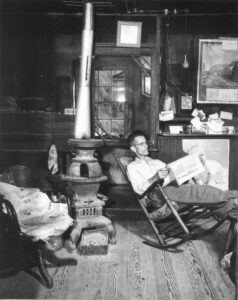
Mills were among the chief economic and social centers for early farmers, placing each miller and his family at the very heart of his community. At the Mascot Roller Mills, farmers sold or exchanged wheat for flour, brought roasted corn for grinding into cornmeal, and had grain ground into feed for farm animals.
Neighbors recollect that it was not uncommon for Jacob Ressler (1854-1938), William Ressler’s son and successor, to act as an informal bank. Jacob, it is said, often loaned his customers money on account until they received their tobacco or milk checks. It is hardly surprising that Jacob later went into banking in addition to milling, and became a director and president of the First National Bank of Intercourse. William K. Ressler (1883-1973), eldest son of Jacob Ressler, also chose a banking career.
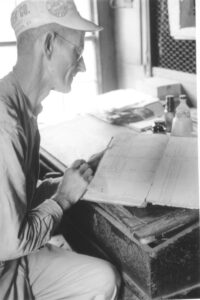
Shortly after Jacob Ressler took over the mill from his father in 1882, he petitioned John Wannamaker, the United States Postmaster General, to have a post office at the mill. An ambitious man newly wed to Annie Groff Ressler (1862-1947), Jacob correctly anticipated his neighbors would enjoy the convenience of picking up and posting mail at the mill. In a town meeting at the mill, the local residents adopted Annie\’s suggestion to name their village Mascot, after a little dog she and Jacob saw in a Broadway stage show on their honeymoon. The post office also enhanced the mill\’s role as the community center, and from that time on, both the mill and the village were known as Mascot.
On mill visits farmers also exchanged news with their neighbors, looked at the sale bills posted in the mill to see whose farm or equipment was coming up for auction, and perused the world and local news in the Intelligencer Journal or Wall Street Journal in the mill office. If the miller was not too busy, men sat on the benches in the mill office and held gab sessions. On Saturday nights, if there was not church for the local Amish church district the next day, a festive “for men only” atmosphere prevailed.
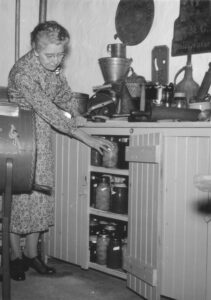
The atmosphere in the Ressler Family Home was distinctly more genteel and feminine, and the local farm women and children who visited the Ressler women often found cordial and charming companionship in the kitchen or sitting room with Anna Ressler (1895-1978), Grace Ressler (1887-1920) and their mother, Annie Ressler.
As residents of the community’s informal news hub, the Ressler children grew up with their ears tuned to local news. It is not surprising then, that one member of the Ressler family went to work as a newspaper reporter for the Intelligencer Journal in Lancaster. Miller Ressler (1893-1967), the fifth child of Jacob and Annie Ressler, chronicled Lancaster County agriculture in a daily page-one column called The Farm Corner. Sadly, three of Jacob and Annie’s children met early deaths. Jacob (1884-1890) died of diphtheria, and Grace died of pneumonia. Oram (1891-1904) died following an unfortunate accident in the mill.
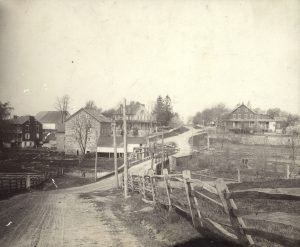
William, Miller and John Harold Ressler (1899-1963), an advertising executive, all pursued careers away from Mascot and milling. Franklin Ressler (1901-1993) and Anna Ressler, however, remained with their Mascot home and mill. These two children of Jacob and Annie Ressler understood that they and their family’s mill were at the heart of the community, and they devoted themselves to seeing that the heart kept on beating. Franklin apprenticed to his father and spent his entire working life in the mill, except when he served in the Pacific with the Army Air Force during World War II. After the war, Franklin kept the mill in excellent order long after many farms abandoned wheat farming and switched their allegiance to mobile mills and the grocery store. Anna gave up a promising career as a teacher and school administrator to help care for her family and household. Long after the deaths of her parents, Anna remained in Mascot and lovingly preserved the 19th century Ressler Family Home.
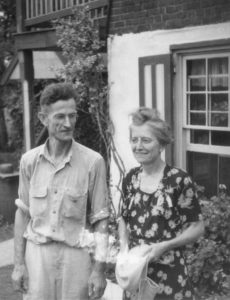
Franklin and Anna believed that their position at the heart of the community carried a serious responsibility. As older neighbors share their recollections of the Ressler family, one phrase is heard time and again: “The Resslers were good neighbors.” Ressler family members paid school tuition for the children of neighbors who were less fortunate, purchased farm animals for neighbors who had experienced tragic barn fires, and contributed to local charities and their church, Bird-in-Hand United Methodist Church.
So many early mills are gone – victims of fire, floods, age, and modernization. The aims of the non-profit Ressler Mill Foundation, established by Anna, Franklin and William Ressler, are to preserve the mill and home property, support the local community, and educate the public about grain milling and a life no longer with us. Foundation board members are well aware the mill is still located in the heart of an Amish and Mennonite farming community, and aim to continue in the Ressler family tradition of being a quiet and considerate neighbor.
